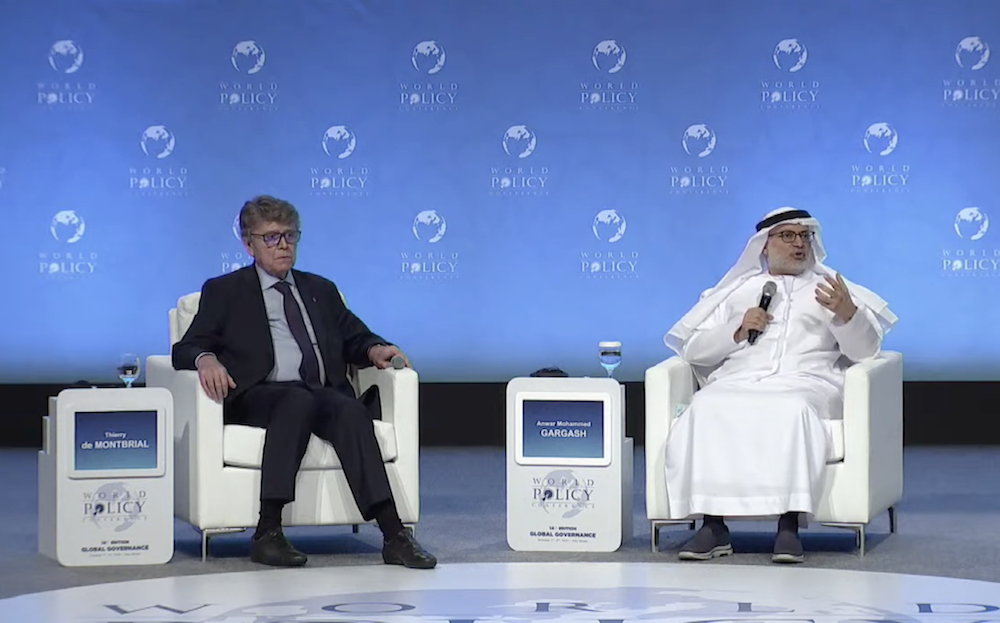Algeria escalates France dispute with flight ban
PARIS: The diplomatic discord between Algeria and France deepened Sunday after Algiers banned French military planes from its airspace, its latest response to a row over visas and critical comments from President Emmanuel Macron.
France’s jets regularly fly over the former French colony to reach the Sahel region of western Africa, where its soldiers are helping to battle jihadist insurgents as part of its Barkhane operation.
“This morning when we filed flight plans for two planes, we learned that the Algerians had stopped flights over their territory by French military planes,” said an army spokesman, Col. Pascal Ianni.
He said the decision had “slightly impacted” supply flights but “does not affect our operations” in the Sahel.
But the move heightened tensions that had already flared on Saturday when the Algerian government recalled its ambassador to France, citing “inadmissible interference” in its affairs.
According to French and Algerian media reports, Macron told descendants of figures in Algeria’s 1954-62 war for independence that the country was ruled by a “political-military system” that had “totally re-written” its history.
“You can see that the Algerian system is tired, it has been weakened by the Hirak,” he added, referring to the pro-democracy movement that forced Abdelaziz Bouteflika from power in 2019 after two decades at the helm.
Macron’s office did not deny the reported comments, but said the president was discussing the war in Algeria with French youths and answering questions, not giving an official interview.
Ianni said there had been no official notification of the flight ban, and the French Foreign Ministry, contacted by AFP, declined to comment.
Last year, the Algerian government criminalized the dissemination of what it considers “false news” that harms national unity.
Saturday’s ambassador recall was the second time it had done so, having taken a similar response in May 2020 after French media broadcast a documentary about the Hirak movement.
Algerian officials have cracked down on efforts to revive the pro-democracy protests, and rights groups say dozens of people linked to it have been jailed in recent months.
Algiers was also angered last week after France said it would sharply reduce the number of visas it grants to citizens of Algeria, Morocco and Tunisia.
Paris said the decision had been made necessary by the former colonies’ failure to do enough to allow illegal migrants in France to be returned.
When a French court denies a person’s visa request, authorities must still secure a consular travel pass from his or her home country in order to forcibly expel them, a document that Paris says Algiers, Rabat and Tunis are largely refusing to provide.
Macron has reportedly ordered the number of visa deliveries to Algeria and Morocco to be halved from 2020 levels, and by a third for Tunisia.
The Algerian Foreign Ministry summoned France’s ambassador Francois Gouyette on Wednesday to make a “formal protest” of the visa ruling.

Algeria recalls ambassador to France as tensions riseAlgeria summons French ambassador over visa restriction decision





